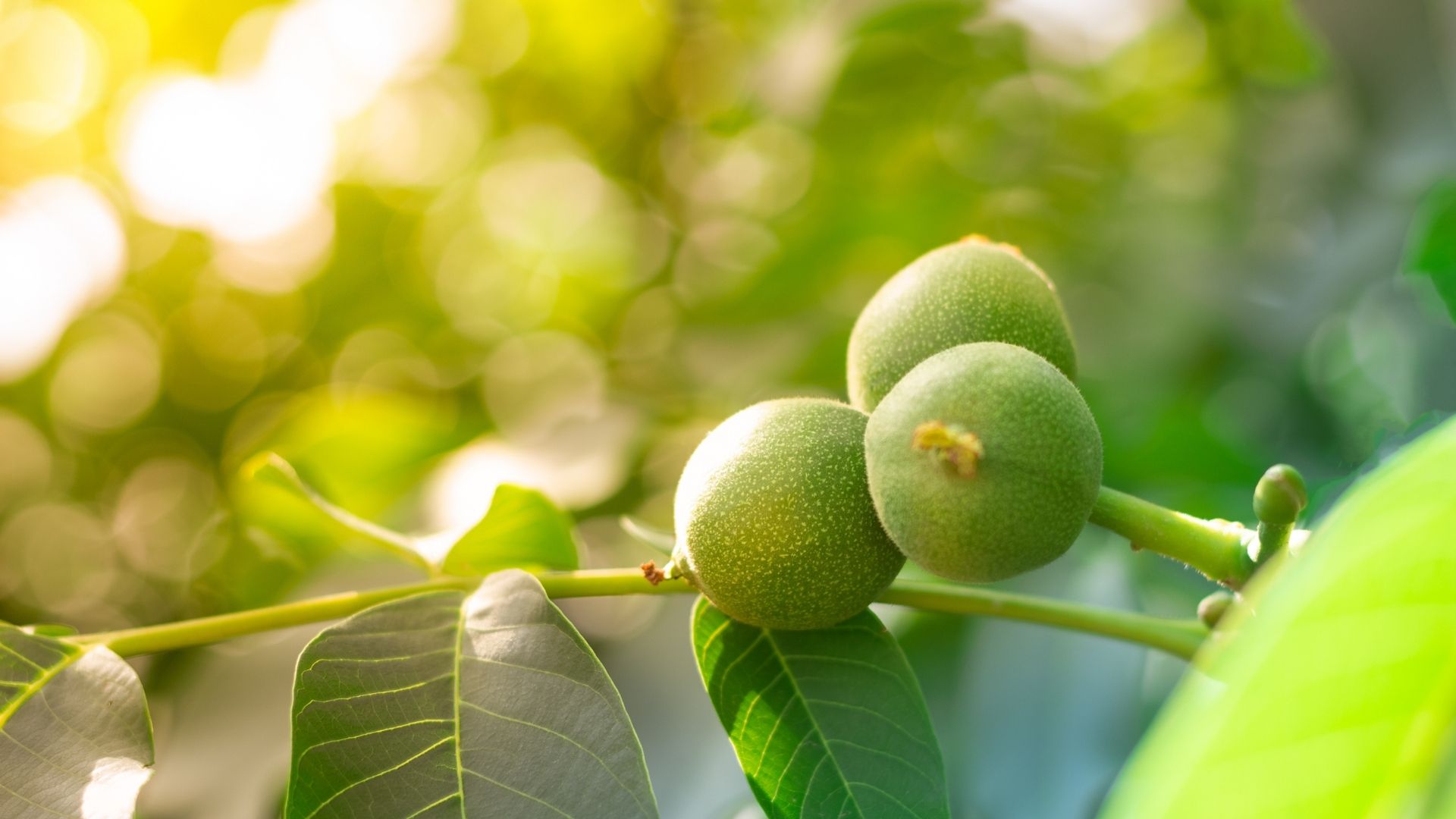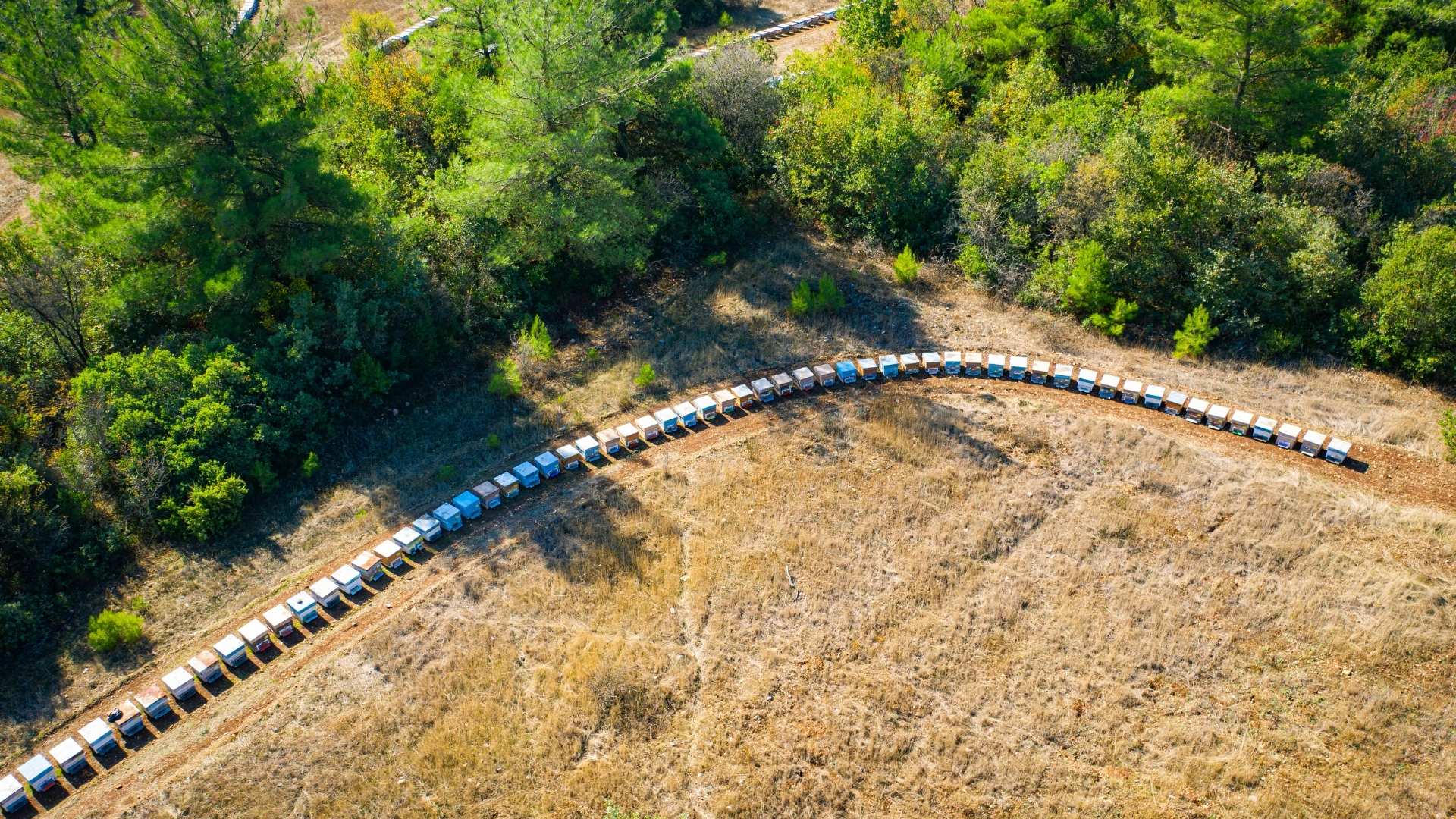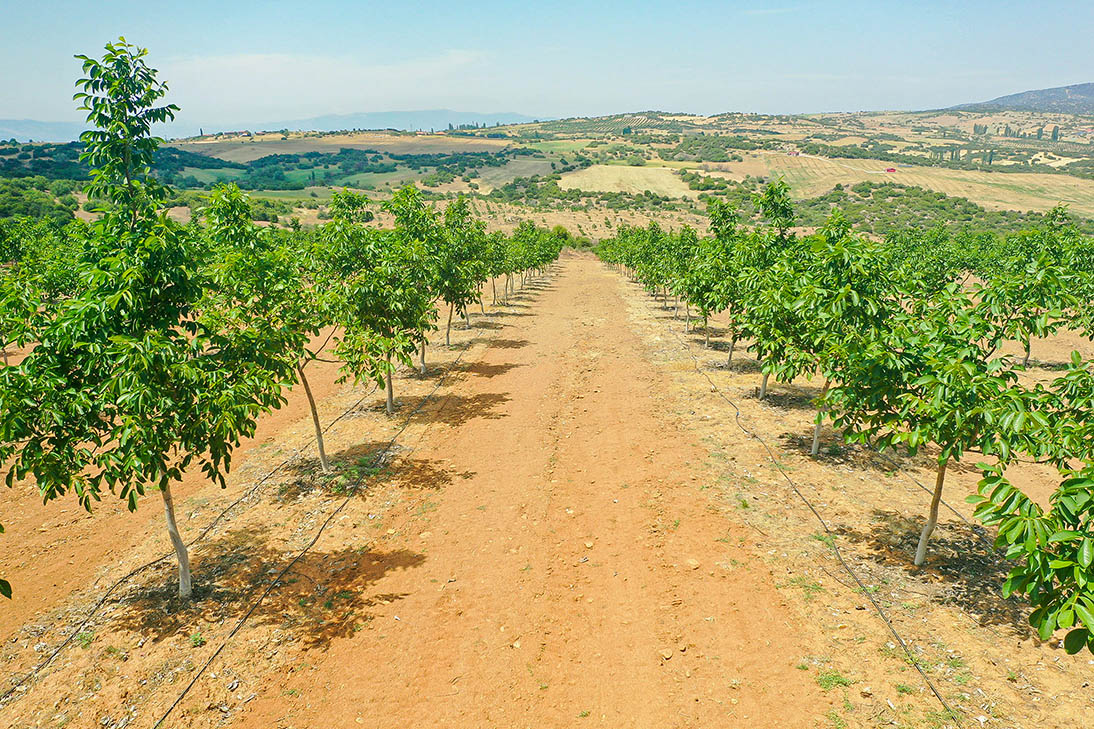
Walnut Cultivation: All Investors Need to Know
Walnuts are a sought-after health food and a lucrative investment for agriculture enthusiasts. Cultivating walnuts requires specific knowledge and considerations, making it essential for investors to understand the primary aspects of walnut cultivation before venturing into this field. In this blog, we’ll explore the essentials of walnut cultivation that all agricultural investors should know.
8 Steps of Walnut Cultivation
#1 Choosing the Right Location
The first step for fruitful walnut cultivation is finding a strategically placed plot for the plantation. Walnut trees thrive in areas with well-drained soil and total sun exposure. They prefer regions with a temperate climate and a chilling requirement of 400 to 1,000 hours below 45°F (7°C) during winter.
#2 Variety Selection
Several varieties of walnuts exist, each with its unique characteristics. Common varieties include the English walnut (Juglans regia) and the black walnut (Juglans nigra). When selecting a variety, experts evaluate the climate and soil conditions of the location to ensure healthy walnut cultivation.
#3 Soil Preparation
Walnut trees thrive in deep, fertile soil with excellent drainage. Before planting, the soil must be thoroughly prepared, ensuring it has the proper pH levels (around 6.0 to 7.5) and sufficient nutrients.
#4 Planting Walnuts
Experts typically propagate walnut trees from grafted nursery stock rather than seeds. This method ensures quicker fruit-bearing and more consistent quality. Planting is best done in early spring, with spacing adapted to the individual needs of the chosen variety.
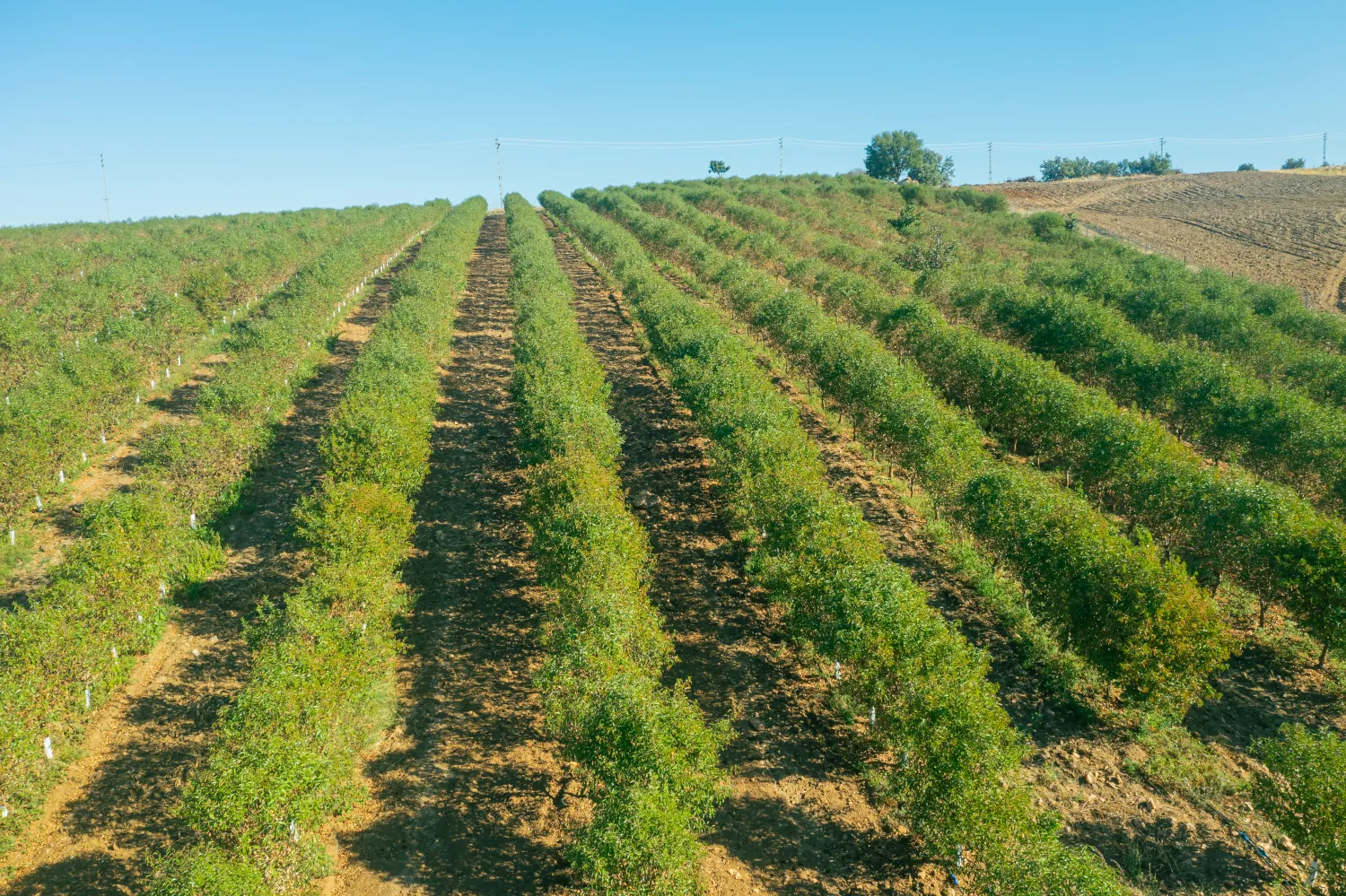
#5 Nutrient Management
Walnut trees have specific nutrient requirements, particularly nitrogen, potassium, and zinc. Regular soil tests are required, along with fertilization, to ensure optimal growth and yield.
#6 Irrigation in Walnut Cultivation
While walnut trees are drought-tolerant once established, they require steady irrigation to guarantee healthy growth and nut production throughout the growing phase and dry spells.
#7 Pest and Disease Management
Walnut trees are susceptible to various pests and diseases, including walnut blight, walnut husk fly, and aphids. Integrated pest management practices are the best way to control these threats.
#8 Harvesting Walnuts
Walnut trees typically start producing nuts in 3 to 5 years, with total production reached in 8 to 12 years. Harvesting usually occurs in the fall when the nuts are mature. Large-scale harvesting is mechanized, using a specialized machine (a small vehicle equipped with an arm to grip the trunk) that shakes the tree, causing the nut pods to fall to the ground. Proper harvesting and post-harvest handling are crucial to maintain nut quality.
Did you know you can Invest in Walnut Plantations?
As Europe’s pioneering agricultural real estate development company, Invest4Land has innovated a unique freehold agricultural land model in Turkey for walnut cultivation. This model offers the opportunity to purchase farmland and guarantees management for optimal commodity value harvests. Our expert team presents a range of agricultural land for sale in Turkey, where we oversee farm management to produce highly sought-after commodities like walnuts. Additionally, we continuously develop innovative methods for modern agriculture, prioritizing environmental and societal impact.
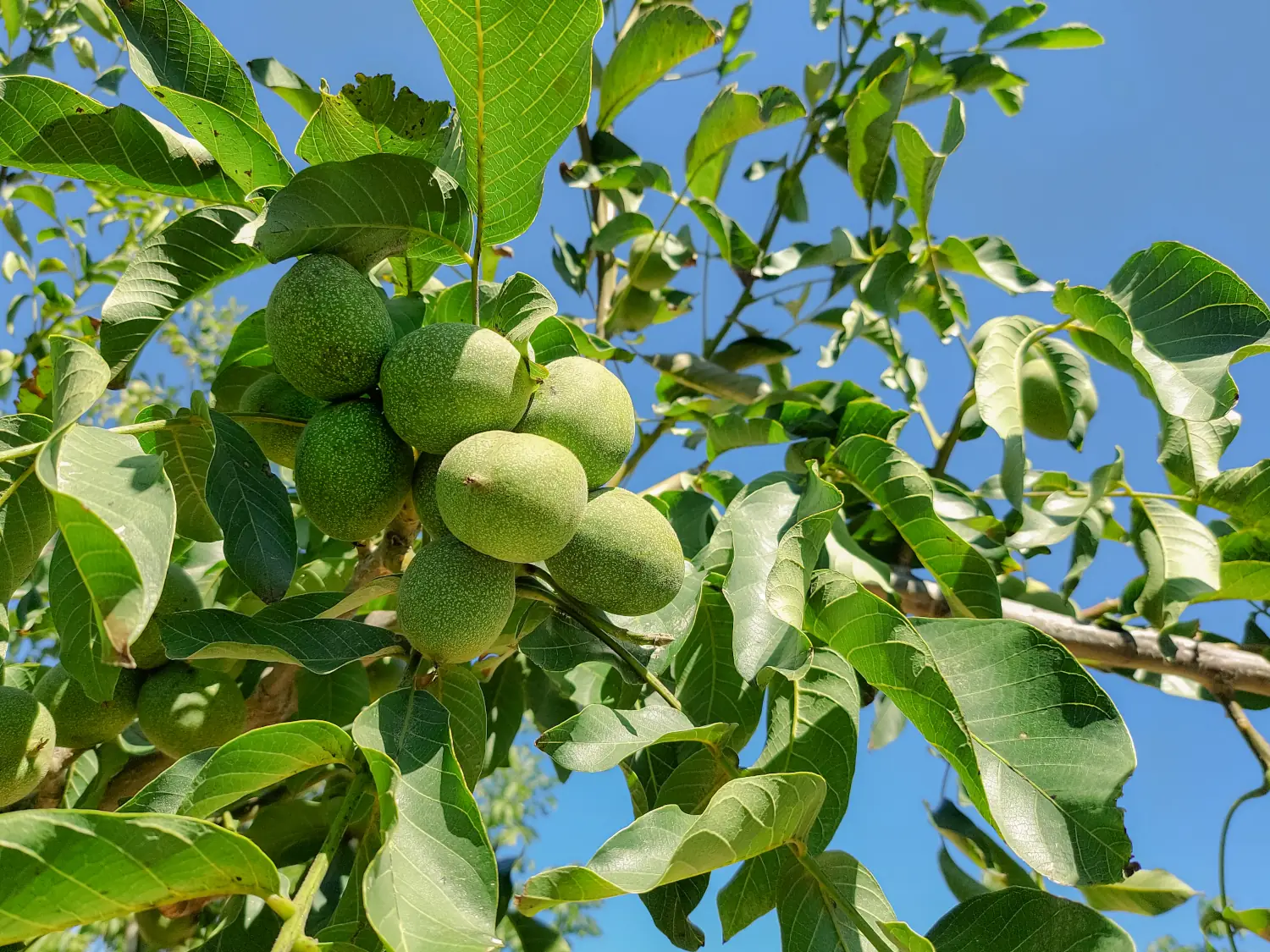
A Fruitful Partnership for Walnut Cultivation
Investing in walnut cultivation requires intricate knowledge and experience to navigate successfully. Partnering with a trusted expert like Invest4Land offers several benefits. Firstly, Invest4Land’s expertise in agricultural real estate and walnut cultivation ensures that investors make informed decisions, mitigate risks, and maximize returns.
Our professional team manages the farmland effectively, utilizing best practices to ensure optimal walnut production. Moreover, Invest4Land’s global operating knowledge and decades of experience in agricultural investment provide investors with a reliable and hassle-free investing experience. By working with Invest4Land, investors can leverage their expertise to access exclusive opportunities and achieve long-term success in walnut cultivation.
Cultivate Walnuts the Right Way with Invest4Land
In conclusion, walnut cultivation holds great promise for investors dedicated to understanding and meeting the crop’s specific needs. Collaborating with a professional management team, such as Invest4Land, can significantly enhance the investment experience. Our expertise in agricultural real estate and walnut cultivation enables us to guide investors toward informed decisions, maximizing the potential returns from walnut cultivation. With our professional team, global operational expertise, and decades of agricultural investment experience, every stage of investing with Invest4Land is seamless and straightforward.
We recognize that a well-managed agricultural system is crucial for investors in farmland. Moreover, investing in agricultural real estate in Turkey can offer additional benefits, such as qualifying for a Turkish passport through investment, which is particularly appealing to international investors. If you share our passion for walnuts and are considering investing in this lucrative crop, we invite you to contact our team to discover the exciting opportunities Invest4Land offers.


